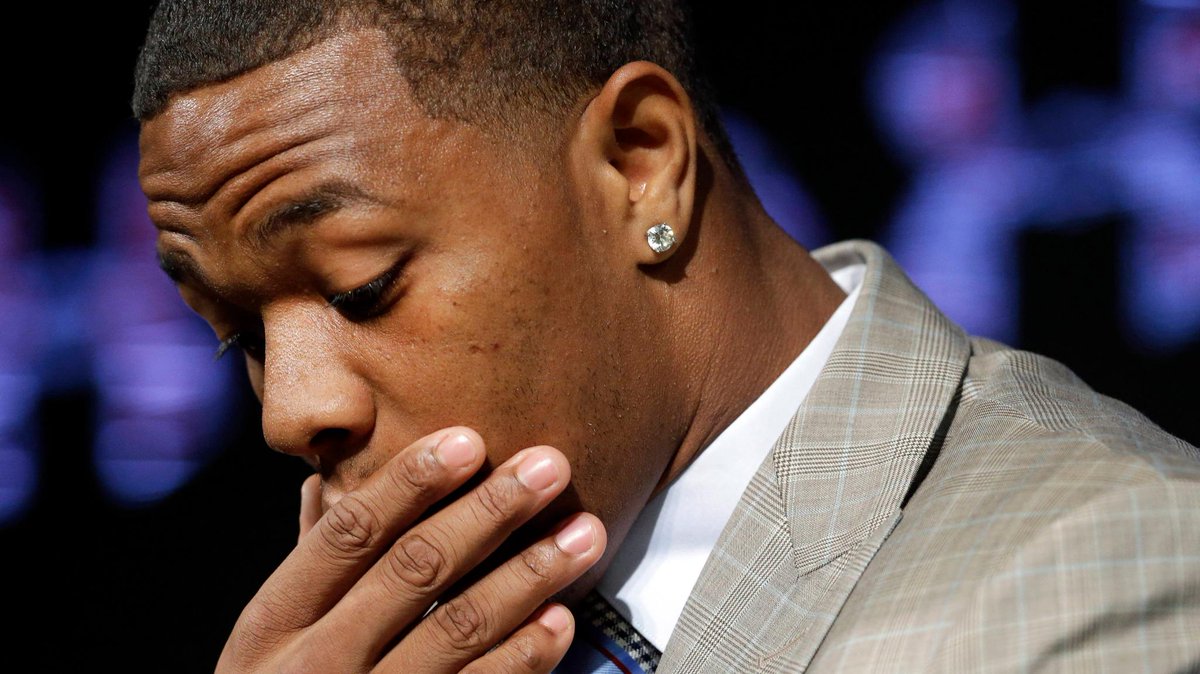On Aug. 24, former NFL player Ray Rice came to Fordham to speak to the football team. Rice, who is from New Rochelle, N.Y., was a running back for the Baltimore Ravens from 2008 to 2013. His NFL career ended in 2014 when he was arrested for assaulting his then fiancée Janay Palmer. Rice is now a public speaker, talking about his life and promoting good decision-making to college football teams across the country.
In February 2014, Rice and Palmer were in an Atlantic City hotel elevator together when Rice hit Palmer twice, knocking her unconscious, then dragged her to their hotel room. The NFL initially suspended Rice for only two games, but after TMZ released the video to the public in September 2014, Rice was suspended indefinitely, ending his professional football career. Rice pled guilty and agreed to attend an “intervention program” rather than facing a trial and possible jail time.
Both the NFL’s handling of the situation and the legal proceedings and punishment for Rice were criticized as too lenient. While the NFL did suspend Rice indefinitely once the video was released to the public and maintained that nobody within the NFL had seen the video before it was released, the Associated Press produced a voicemail from April 2014, in which an NFL executive commented on the video.
Not only did the NFL and the legal system fail to properly punish Rice, but Fordham also did not acknowledge the severity of his actions. In a short article published on the Fordham sports website on August 24, it was written that Rice was “involved in a domestic violence incident.” This wording does not accurately describe what happened and removes responsibility from Rice for his violent actions, likely in an attempt to validate the decision to bring Rice in to speak to the football team.
Rice has stated that he understands that he’s “dealing with a situation where it’s going to have to come down to some forgiveness and somebody willing to say this guy deserves a second chance.” He is making the best out of a bad situation, framing his journey as a cautionary tale and promoting good decision making.
While Rice is genuinely remorseful for his actions and has taken full responsibility for them, Fordham did a disservice to the community in failing to acknowledge Rice’s role in the “domestic violence incident.” Fordham’s failure to properly address and disclose Rice’s actions is part of a larger pattern within the institution of unwillingness to hold perpetrators accountable for their behavior.
In January 2018, two students at the Lincoln Center campus visited two Philosophical Ethics sections taught by Dr. William Jaworski on the first day of class. Before Dr. Jaworski arrived, Samantha Norman and Eliza Putnam informed the students that there were multiple Title IX complaints and two substantiated claims made against the professor, something that they felt they had a duty to do, as Fordham had not yet addressed the issue.
Rather than more closely examining the many formal and informal complaints made against Dr. Jaworski, Fordham University launched an investigation into Norman and Putnam’s behavior, charged them with dishonesty and suspended Dr. Jaworski with pay until the end of the calendar year. When asked for comment by the New York Times, Bob Howe, a spokesman for Fordham, said that he could not comment on specifics, but that Fordham “took and [is] taking appropriate action in these cases,” although investigating victims rather than the perpetrator hardly seems like appropriate action.
In January 2019, a list of Jesuits accused of sexually abusing minors was released by the Northeast Province of the Society of Jesus. Nine Jesuits on that list were connected with Fordham University and Fordham Prep, and rather than addressing the accusations against them directly, these priests were moved to different positions and locations to avoid public scrutiny, as was the norm within the Catholic Church. While the university did inform the community of the release of this list, for decades, Fordham ignored the crisis. Even once the list was released to the public, Fordham shifted blame to the Northeast Province of the Society of Jesus, rather than taking accountability for what they had control over and acknowledging their failure to intervene.
Fordham, and other academic institutions, are businesses and brands. In efforts to protect its reputation, Fordham is willing to sweep issues of misconduct under the rug and defend their decisions rather than holding perpetrators and the institution accountable for their actions. This pattern of behavior is not only true for Fordham, but also for colleges and universities across the country.
However, it is impossible for an academic institution to maintain their reputation by any means necessary and prioritize their bottom line while also focusing on the well-being and education of their students. This is demonstrated in how the university chooses to handle Title IX and misconduct cases, and in the unwillingness of the Fordham administration to agree to a fair contract with the Fordham Graduate Student Workers union. It is past time for Fordham, and other colleges and universities, to reckon with their actions and come to a decision about what matters most.
Eleanor Smith, FCRH ’26, is a history and American studies major from St. Paul, Minn.











































































































































































































Michael Shannon • Sep 12, 2023 at 9:18 am
Well done in exposing and calling out this strategy of avoidance to maintain a reputation. The lack of accountability and and the dichotomy in discipline demonstrated toward staff versus students is truly concerning. This is not the way to build and maintain the brand of an institution of higher learning; especially one founded in the traditions of the Society of Jesus. Kudos to the author and The Ram.